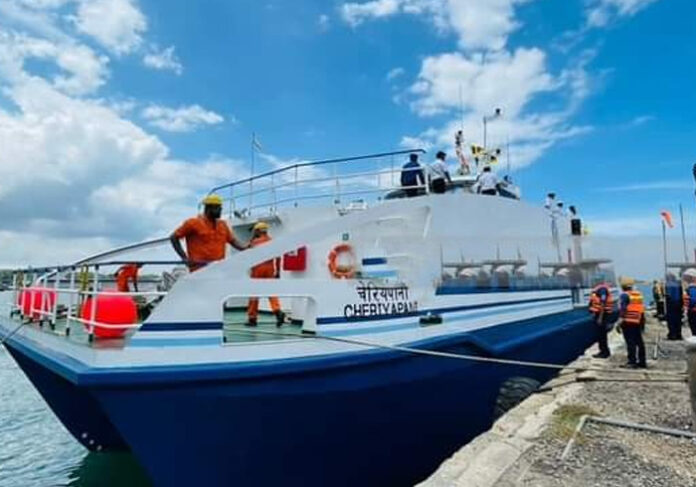In a bid to enhance maritime passenger transport between Sri Lanka and India, the government has approved a reduction in the deviation tax levied on passengers departing Sri Lanka by passenger vessels and ships. Minister Bandula Gunawardana announced the decision, highlighting its potential to stimulate tourism and foster cultural exchange between the two nations.
The Sri Lankan government has greenlit a measure to slash the deviation tax imposed on passengers departing the country via passenger vessels and ships, aiming to bolster maritime passenger transport between Sri Lanka and India. Minister Bandula Gunawardana unveiled the decision during the weekly Cabinet briefing, emphasizing its role in facilitating tourism growth and fostering cultural exchange initiatives.
Presently, passengers leaving Sri Lanka by passenger vessels and ships are subjected to deviation taxes of USD 5 and USD 20, respectively. With the newly approved reduction, travelers can anticipate more affordable fares for maritime journeys, encouraging greater connectivity between the two neighboring countries.
In addition to the deviation tax adjustment, the government has also sanctioned a complimentary baggage allowance of up to 60 kgs per passenger traveling by passenger vessel. This initiative aims to further incentivize maritime travel and streamline passenger experiences.
Minister Gunawardana underscored the significance of promoting maritime passenger transport between Sri Lanka and India, highlighting its potential to invigorate the tourism sector and foster bilateral cooperation in cultural exchange, arts, and sports. The move reflects the government’s commitment to facilitating seamless connectivity and fostering closer ties with neighboring nations.
Acknowledging the importance of affordability in travel and transportation, Minister Gunawardana emphasized the need for a low-cost fee system to ensure accessibility and inclusivity in maritime passenger transport. The initiative aligns with broader efforts to enhance regional connectivity and promote sustainable tourism development in South Asia.


